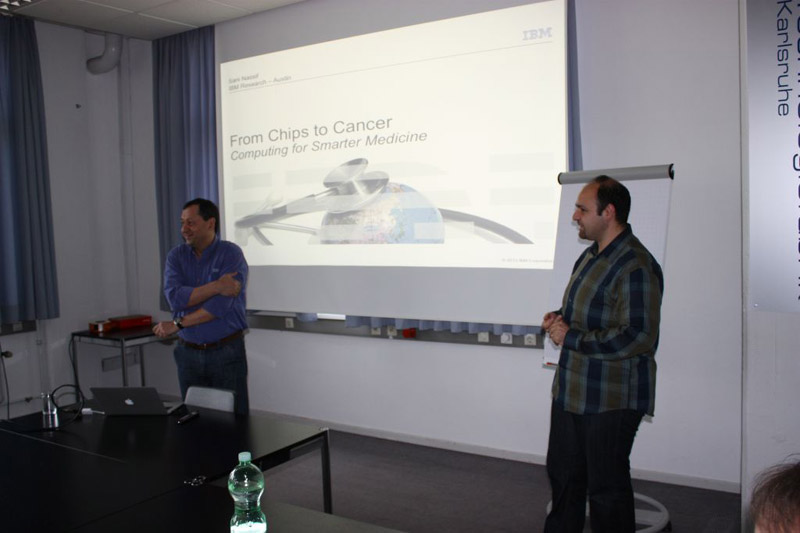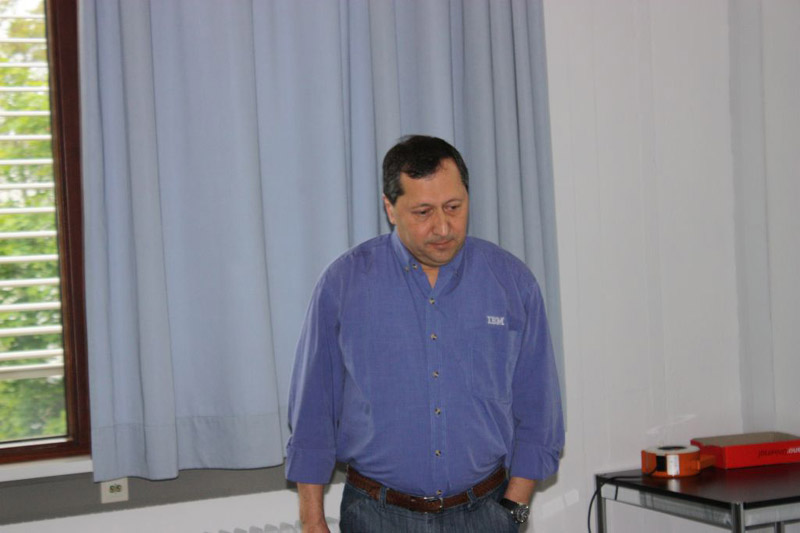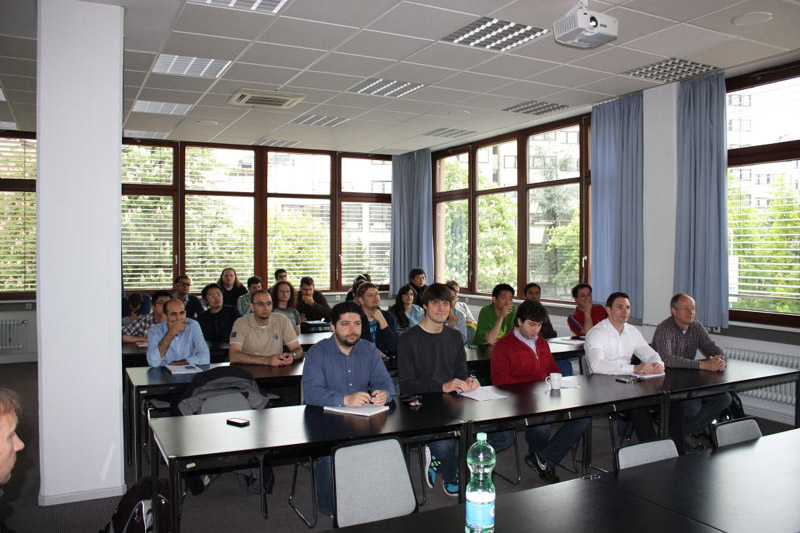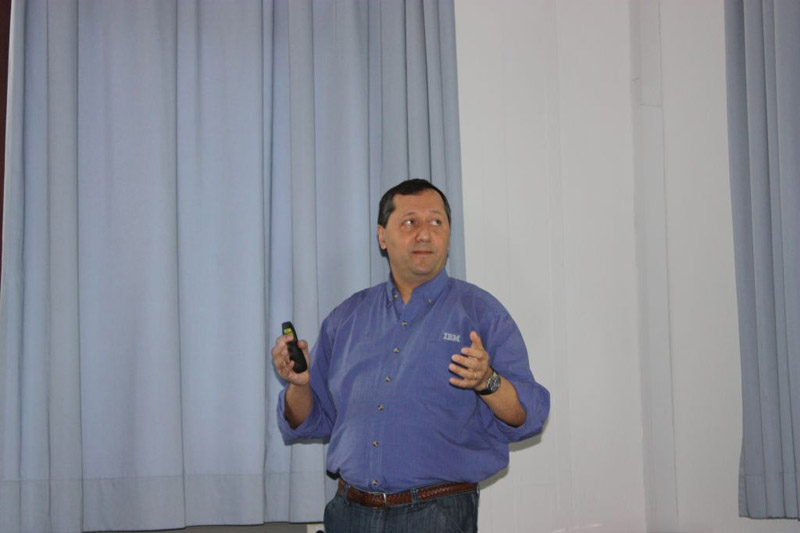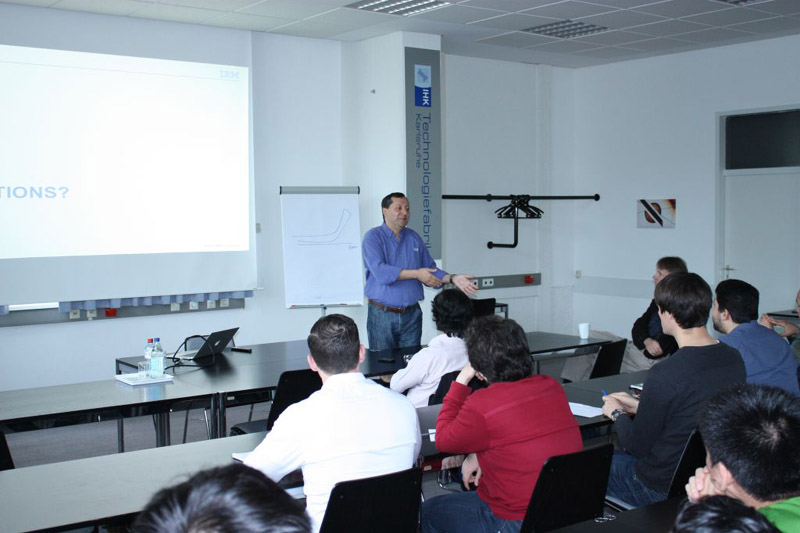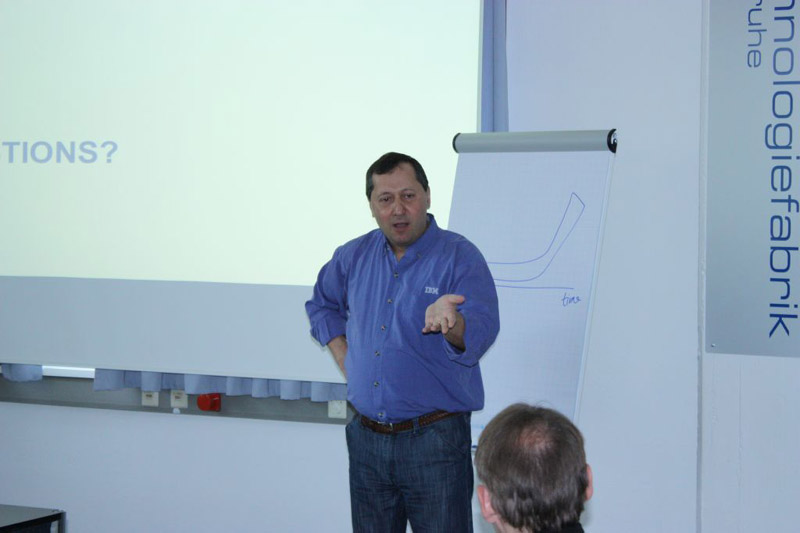From Chips to Cancer
-
Speaker:
Dr. Sani Nassif
IBM Research at Austin, US
-
Location:
H 120,
Technologiefabrik,
Karlsruhe - Date: May 16th, 2013, 10:00am
Abstract:
The human race has invested about a trillion dollars in the development of semiconductor electronics, and our lives have been improved greatly as a result. Smart devices are now taken for granted and permeate every aspect of our daily lives. One of the important products of this huge investment was the development of sophisticated design optimization and simulation tools to allow the largely automated design and verification of integrated circuits. Sometimes we in the VLSI community do not realize quite how advanced we are in this field, and just how applicable much of the Silicon R&D work is to other areas...
This talk will be about one such area, namely that of Proton Radiation Cancer Therapy, where a team at IBM, working with researchers at the M. D. Anderson Cancer Research center, have been busy applying knowledge from the VLSI area to this important problem. We will show examples of applying large scale analysis and optimization techniques to the treatment planning problem, and hopefully motivate other VLSI researchers to seek applications of their deep knowledge in adjacent fields.
Short Bio:
Sani Nassif, IBM, received his PhD from Carnegie-Mellon university in the eighties. He worked for ten years at Bell Laboratories on various aspects of design and technology coupling including device modeling, parameter extraction, worst case analysis, design optimization and circuit simulation. He joined the IBM Austin Research Laboratory in January 1996 where he is presently responsible for new initiatives in the "Smarter Planet" area, formed by applying VLSI principles to other areas of research such as hydrology, energy, pollution and medicine. Sani is an IEEE Fellow, a member of IBM's Academy, and an IBM Master Inventor with more than 50 patents.



